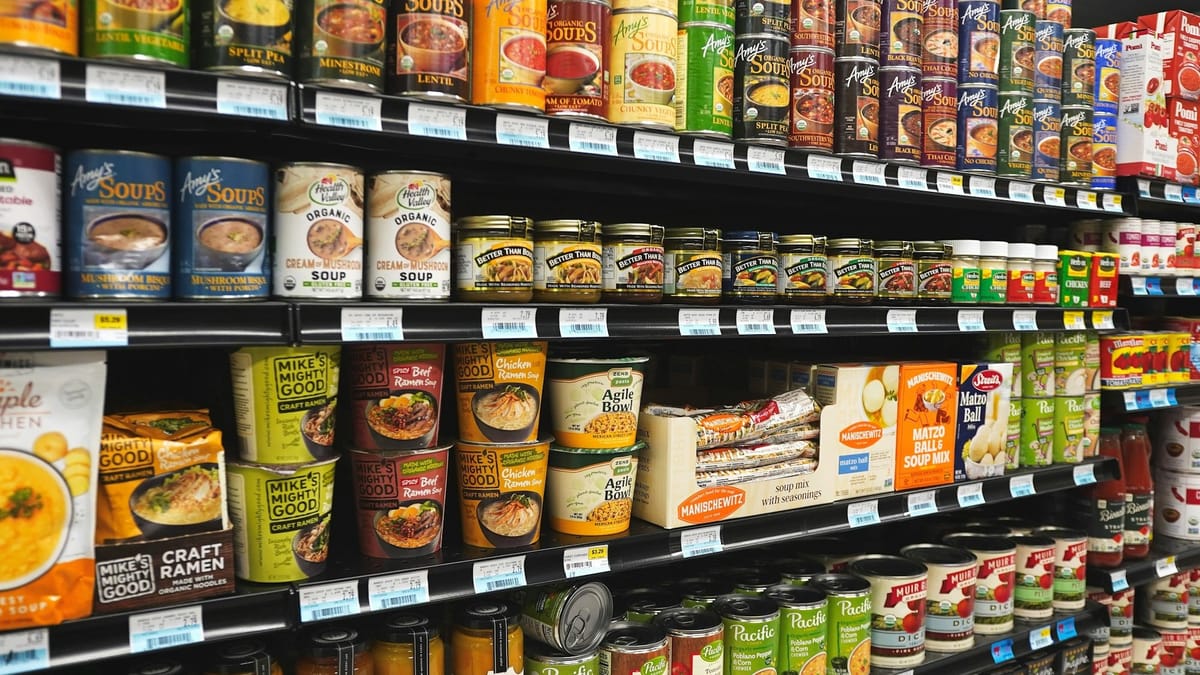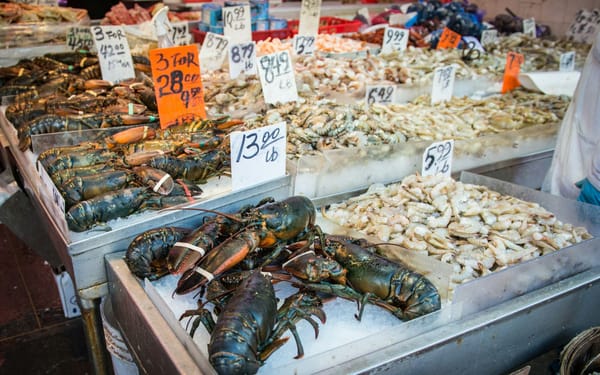Hidden Pork Ingredients in Everyday Foods: A Halal Consumer Guide

Living as a Muslim in the West means constantly being vigilant about what we eat. While we might think avoiding pork is as simple as skipping bacon and ham, the reality is much more complex. Parts of a single pig can end up in hundreds of products that aren't obviously pork-based, hidden behind technical names and E-numbers that make them nearly impossible to spot.
With the global halal food market projected to reach over $5 trillion by 2033 and more than 1.9 billion Muslims worldwide seeking halal-certified products, it's clear that knowing what's truly halal has never been more important.
Let's uncover these hidden ingredients together, inshallah.
The Sneaky World of Pork Derivatives
You'd be amazed at how creative food manufacturers can be when it comes to using every part of the pig. These ingredients often appear under technical names or E-numbers, making them easy to overlook.
The challenge isn't just about obvious pork products. It's about gelatin in your yogurt, lard in your tortillas, and enzymes in your cheese. These derivatives serve specific functions - from creating that perfect chewy texture in gummies to making pie crusts flaky and delicious.
Snacks That Aren't What They Seem
Your Favorite Chips Might Not Be Halal
Those cheese-flavored chips you love? They might contain porcine enzymes used to develop that sharp cheddar taste. Certain cheddar chips and corn chips were historically made with pig-derived enzymes in the cheese powder.
Even "bacon-flavored" chips often contain real bacon fat for authenticity. When shopping for snacks, look for brands that specifically state "no pork enzymes" or carry halal certification.
The Gelatin Trap in Nuts and Gum
Planters dry roasted peanuts list gelatin among the ingredients, used as a binder for the flavor coating. This gelatin helps spices stick to nuts, but it's commonly pork-derived.
Chewing gum presents another surprise. Some chewing gums contain stearic acid, an ingredient obtained from animal fats (often pork) used to prevent the gum from sticking. Always check for gum brands labeled vegan or plant-based.
Candy and Mints: Sweet Deception
Altoids mints contain gelatin in small quantities – and the manufacturer confirmed this gelatin is derived from pork. Many fruit chews, gummies, and gel-based candies use pork gelatin for their signature chewy texture.
For more guidance on halal candy options, check out our comprehensive guide to halal candies in the US.
Desserts and Dairy: Hidden Surprises
The Gelatin Problem in Desserts
Gummy candies, marshmallows, and jellies almost always rely on gelatin as a gelling agent to create their form. Unless labeled "Halal," "Kosher," "vegan," or "plant-based," assume the gelatin is porcine.
Ice cream can be tricky too. Some frozen yogurts, sorbets, and ice creams – especially diet or "sugar-free" varieties – may contain gelatin to prevent ice crystal formation.
Dairy Products That Disappoint
Many low-fat or "light" yogurts, puddings, and sour creams include gelatin as well. When fat is removed, manufacturers add gelatin to maintain that creamy texture we expect.
The solution? Look for yogurts marked "vegetarian" or with halal/kosher certification. Many brands now use plant-based thickeners instead.
Baked Goods and Bread: The Lard Legacy
Traditional Baking's Pork Problem
Some traditional or packaged breads and pie crusts include lard or animal shortening for texture. The popular "Jiffy" Corn Muffin mix famously contains hydrogenated lard as an ingredient.
Many flour tortillas and some flatbreads use lard in the dough to make them soft and pliable. Unless the package says "100% vegetable oil" or "vegetarian," traditional-style tortillas could contain pork fat.
The Hidden Dough Conditioner
L-cysteine (E920) is used as a dough improver to increase stretch and extensibility in baking, often derived from human hair or animal hair/bristles, including pig bristles.
This additive helps bread rise and stay soft, but when sourced from non-halal sources, it makes the entire product haram. Look for bread brands with halal certification or those that specify plant-based dough conditioners.
Processed Foods and Restaurant Surprises
The Casings Catch
Even if a sausage is made from halal beef or turkey, the casing might be pork intestine. Natural sausage casings are often from hog intestines unless specified as sheep or artificial casings.
Beans Aren't Always Safe
Refried beans often contain lard or bacon fat as a frying medium for flavor. Most authentic recipes and many canned refried beans use lard for that rich taste and creamy texture.
For better alternatives, check out our halal meal preparation guidelines for safe cooking tips.
Fast Food Frying Concerns
While most modern chains use vegetable oils, some independent restaurants might still use lard for frying. Some chefs season grill tops or vegetables with bacon grease for extra flavor – making otherwise plant-based items haram by contact.
When dining out, don't hesitate to ask about frying oils. Our guide to halal fast food chains in the US can help you make safer choices.
Cheese and Dairy: The Enzyme Issue
The Rennet Problem
Pepsin, an enzyme from pig stomachs, is sometimes used in cheese production (especially in making certain types of hard cheese). Porcine lipase may also be added to develop flavor in cheeses like Romano or Pecorino.
Unless a cheese is labeled "vegetarian rennet" or is halal/kosher certified, its enzymes could come from pigs. This makes many mainstream cheeses questionable for halal consumers.
Processed Cheese Concerns
Some jarred cheese spreads and sliced cheeses have emulsifiers that could be animal-derived. Mono- and di-glycerides in margarine might be from animal fat including pork.
Beverages: The Clarification Problem
Fruit Juice Surprises
Certain fruit juices are clarified using gelatin, which acts as a fining agent that binds suspended particles. This gelatin is often pork-derived and used as a processing aid.
Islamic scholars have ruled that juices clarified with porcine gelatin are not halal, as the contact with a pig derivative renders them impure.
Wine and Vinegar Processing
While Muslims avoid alcohol anyway, it's worth noting that many wines and some beers are "fined" or clarified with gelatin or other animal proteins, including pork gelatin.
Your Halal Shopping Checklist
Red Flag Ingredients to Avoid
Gelatin (E441): Assume it's pork-derived unless explicitly labeled as fish, beef (halal-slaughtered), or plant-based.
Lard: May appear as pork fat, bacon fat, animal shortening, or manteca.
Enzymes/Rennet: Could be porcine enzymes from pig stomachs. Look for "vegetarian" cheese labels.
L-Cysteine (E920): Often from pig bristles or human hair. Choose products with synthetic alternatives.
Mono- & Di-glycerides (E471): Could be from pork fat. Prefer vegetable-derived versions.
Glycerin/Glycerol (E422): Can be from animal fat including pork. Look for vegetable glycerin.
Smart Shopping Strategies
Look for Certification: Halal logos are your best bet. Kosher certification also ensures no pork (though it doesn't guarantee overall halal status).
Read Every Label: The more processed a food, the more likely it contains questionable ingredients.
When in Doubt, Leave it Out: If you can't verify an ingredient's source, it's better to find an alternative.
Ask Manufacturers: Many companies will clarify ingredient sources if you contact them directly.
Support Halal Businesses: Consider exploring how to start a halal business in the US to support the growing halal economy.
The Growing Halal Market
The good news? The halal food market is experiencing unprecedented growth, driven by increasing awareness about halal certification and rising Muslim populations globally. This means more halal alternatives are becoming available every year.
Companies are increasingly seeking halal certification to access the vast global market of Muslim consumers, making it easier for us to find products that align with our values.
Making Informed Choices
Living halal in the West requires vigilance, but it's absolutely achievable. By learning to recognize these hidden ingredients and supporting companies that prioritize halal certification, we're not just protecting our own dietary requirements – we're supporting a market that values our needs.
Remember, halal certification ensures products meet strict Islamic dietary guidelines and signifies adherence to high ethical and quality standards. This benefits not just Muslim consumers, but anyone seeking ethically-produced, high-quality food.
Start checking those labels today, and share this knowledge with your family and friends. Together, we can navigate the Western food market while staying true to our Islamic principles, inshallah.





